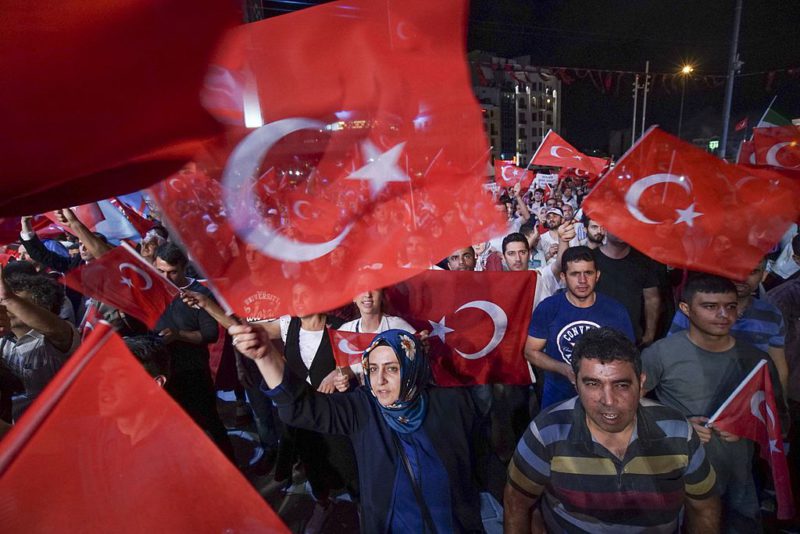On March 18, 2025, Poland and the three Baltic countries announced that they would be considering withdrawing from the Ottawa Convention, otherwise known as the Mine Ban Treaty. This was followed by Finland, which shared similar remarks on April 1. This recent trend among NATO states bordering Russia and their ally, Belarus, shows the heightened tensions due to the war in Ukraine.
The Ottawa Convention was a landmark treaty that prohibited the use, stockpiling, production, and transfer of anti-personnel mines among its signatories. While it had vast support among 162 states, including almost all NATO members, there were notable exceptions, including the US, Morocco, South and North Korea, China, and, importantly, Russia. Russia has been the largest producer and stockpiler of anti-personnel mines in the world, with a suspected 26.5 million mines as of 2024. When Russia invaded Ukraine in 2014 and later in 2022, it utilised anti-personnel mines to cause Ukrainian casualties and prevent counteroffensives against the territories it had seized. Now, Ukraine is the most mined country in the world, with 23% of its land contaminated by mines and unexploded ordnance.
The largest concern regarding anti-personnel landmines is their indiscriminate nature, as they do not distinguish between a civilian and a combatant. They have also been known to remain dangerous even after a conflict has ended, making areas dangerous to navigate and creating thousands of civilian casualties.
The problem that has become apparent from the Ukraine war is that even if a state does not have landmines, it still risks having its territory contaminated with mines if it is invaded by a country that does. Ukraine is a party to the Ottawa Convention, yet Russia has plagued it with landmines, which will not only make the area dangerous and costly to demine but also make it harder for the occupied land to be retaken.
With the aggressive nature of Russia on their doorstep and calls from the US to let European states handle their own defence, we see more serious views in NATO regarding national security. Withdrawing from the landmine treaty is likely a response to these fears as a way of enforcing and exerting the image of defence capacity and readiness. One possibility that NATO border states might be preparing for is an invasion in which an enemy force rapidly annexes large areas of territory and then deploys landmines to hinder counteroffensives, similar to what Russia did in Ukraine.
The war in Ukraine has also shown the effectiveness of landmines in stalling offensives. These weapons stop forces from advancing not only by being present and blowing up, but also by the psychological effect they have. Landmines can be hidden, thus there’s always a fear that one could go off at any moment. Mine clearing is a slow and cautious process that can leave an advancing force open to attack, especially given the prevalence of drone warfare.
Likely scenarios for these NATO states could include landmines being deployed in the event of a foreign invasion, or being placed at important border points that could be used to invade. Lithuania and Poland are already considering using anti-personnel landmines as part of the East Shield project. One important area to protect from quick offenses would be the Suwalki Corridor, which would connect Belarus to Russian Kaliningrad and cut off NATO from the Baltics.
Landmines placed by states within their own territory are still prone to accidents, but could be safer if used responsibly. The most important thing would be to keep track of the mines and ensure they can be deactivated if needed. During wartime, it is difficult to keep track of all landmines deployed. However, during peacetime time it may be easier to ensure all mines are accounted for.
Furthermore, advancements in technology could be used to ensure safety. Landmines could have systems in place to be tracked, remotely activated, or be blown up/deactivated after a certain period of time, removing many of the problems with their use. However, accidents can still happen. The mechanics and technology could fail, and natural causes, such as flooding, can sometimes lead to mines being moved or set off.
The Ottawa Convention is an important treaty in international law, and it’s something we, Canadians, are proud to have helped bring about. It has led to 30 states ridding themselves of landmines, destruction of more than 47,000,000 mines, and has been saving more than 16,000 lives each year as a result of demining efforts.
It is disappointing to see states having to backslide and seek to withdraw from the treaty, but it’s also important to consider the external defence threats that these states face. It is no coincidence that all these NATO members border Russia. Until Russia stops its aggression against Europe and abandons its extensive use of anti-personnel landmines, the mission of the Ottawa Convention will be incomplete, and these actions will force other states to adopt such ways for deterrence.
Photo: Support to humanitarian demining in Ukraine. Courtesy of NATO.
Disclaimer: Any views or opinions expressed in articles are solely those of the author and do not necessarily represent the views of the NATO Association of Canada.




